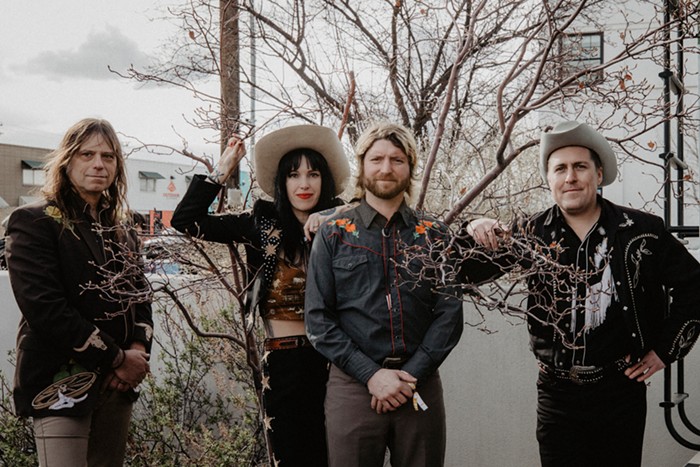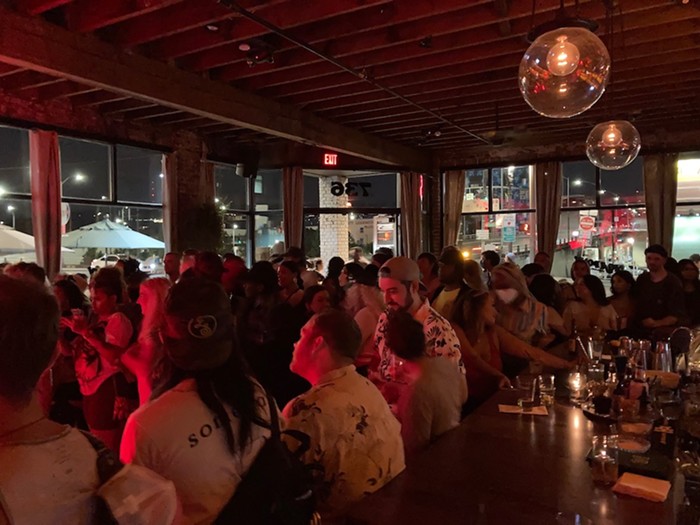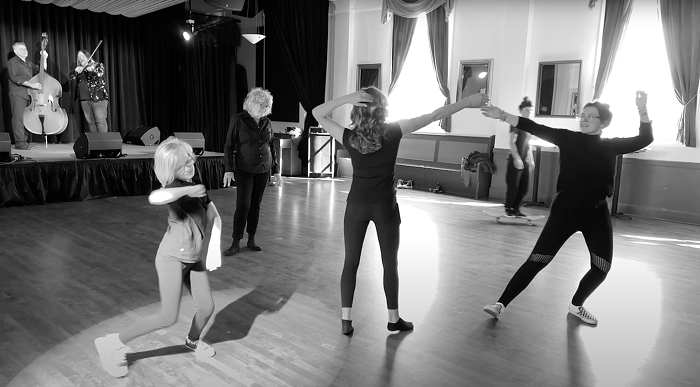ELEANOR FRIEDBERGER is hard on herself. "I don't see myself as succeeding," she says. "I see myself as persevering."
Friedberger is perhaps still best known as one half of Dadaist pop duo the Fiery Furnaces, which she started with her brother Matthew in 2000. The Furnaces went on hiatus in 2011, but that hasn't stopped Eleanor from releasing three solo records—most recently, this year's New View.
The album kicks off with the warm sound of tape rewinding. That's because the whole thing was recorded live to tape, a shift that parallels Friedberger's recent move from Brooklyn to New York's slower-paced Hudson Valley. Her new album evokes sun-kissed nostalgia with the throwback feeling of a live band.
Friedberger continues to move away from the angular, keyboard-based art-pop of the Fiery Furnaces. On New View she explores her passion for the easy-going tempos of '70s folk-rock. "That's the music I like the most," she says, listing Neil Young, Bob Dylan, and Yoko Ono as ongoing inspirations. Warm Hammond organ permeates "A Long Walk," the album's wild coda, calling to mind Dylan's classic "Like a Rolling Stone," with guitar work reminiscent of the legendary Mike Bloomfield.
Friedberger resurrects the Fiery Furnaces' penchant for the surreal on "Your Word," when she sings, "She dreamt she took off both her ears/Put them in the sand and walked away/Up grows a seven-story cactus." Elsewhere on New View, the sharp, rhythmic U-turn taken between songs "Open Season" and "Sweetest Girl" is just the kind of artsy prank the Furnaces would pull.
Her lyrics, which she notes are often autobiographical, remain central to her music. "I almost always start with the lyrics," she says. "I'll get a text message and I'll write down some line. Or it's something I read somewhere, or overheard conversation.
"You have these little moments of inspiration," Friedberger continues, "but after that it's just rolling up your sleeves and finishing it, which is the hard part."
She builds a world with her lyrics, one populated with quirky—albeit somewhat emotionally detached—characters, and balances their flawed accessibility by always having the perfect response to life's crummy situations.
As a solo artist, Friedberger is able to tell her stories her own way. "Maybe I wouldn't push that on to my brother," she admits. "We were a band and the stories we were telling were much broader than a story about a conversation I had with a friend of mine, which is the kind of stuff I tend to write about now."
Friedberger has built a career on her own terms, which is challenging in the music industry's current climate. "I need a patron," she jokes, "if I want to keep making the kind of music that I'm making.
"I feel incredibly lucky and fortunate, too," she adds, "I wouldn't trade anything."


















